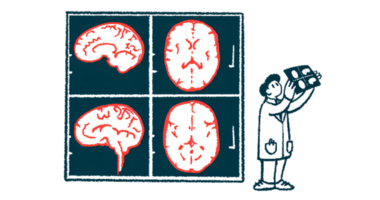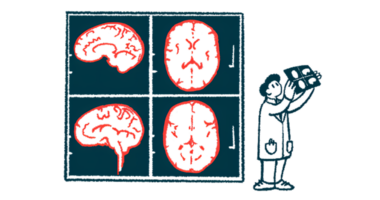Analyzing MS brain scans could further research into COVID-19
MRIs showed faster shrinkage in brain region important for memory, smell

Because people with multiple sclerosis (MS) usually undergo regular MRI scans to image their brains, their data could help researchers learn more the long-term effects of COVID-19 on brain tissue.
That’s the argument by a team of researchers in the paper, “Multiple sclerosis as a model to investigate SARS-CoV-2 effect on brain atrophy,” which was published in CNS Neuroscience and Therapeutics.
COVID-19 is caused by the SARS-CoV-2 virus. There’s some evidence the virus may damage the human brain. For example, some common symptoms of COVID-19 like loss of smell hint at potential damage.
Reliably assessing the possibility of COVID-related brain damage in people hasn’t been easy, however. To do so, researchers would have to compare brain scans from before and after an infection. But because most people don’t get routine brain MRIs, that’s not feasible.
Multiple sclerosis is marked by inflammation that causes damage in the brain, resulting in areas of scarred tissue that are visible as lesions on MRI scans. Tracking lesions is a crucial tool for measuring disease progression, so people with MS usually have MRI scans at least once or twice a year.
Because people with MS usually have long-term brain scans available, “MS represents an ideal model for studying the potential effects of infection with SARS-CoV-2 on brain structure,” the researchers wrote.
“The large number of scans enables us to compare a person’s brain before and after a COVID-19 infection,” Michael Rebsamen, a PhD student at the University Institute for Diagnostic and Interventional Neuroradiology in Bern, Switzerland, said in a news release from the Swiss National Science Foundation, which funded the study.
As a proof-of-concept for this idea, the researchers analyzed brain imaging data from 14 people with relapsing-remitting MS who’d been infected with SARS-CoV-2. All had stable disease before the infection, and at least three MRI scans were available before being infected and at least one scan was available after.
Results didn’t show significant differences in overall rates of brain atrophy (shrinking) from before and after infection. However, there was a trend toward faster atrophy after infection in the parahippocampal gyrus, a brain region important for memory and smell — two functions commonly impaired after a COVID-19 infection.
This appeared to be more pronounced in those who’d been infected before vaccines or antiviral treatments were available.
The researchers emphasized that it’s impossible to draw any substantial conclusions from the results of their small study. But the findings do represent a proof-of-concept for using MS as a model for studying how COVID-19 affects the brain, they said, calling on other scientists to conduct similar tests so that large datasets can be analyzed.
“Such continuous collaborative effort of the MS community could fill important missing points in the knowledge of SARS-CoV-2 itself as well as the interplay between SARS-CoV-2 and MS,” they said.
“The big question is also whether the changes that have been measured are reversible or if they persist,” Rebsamen said.







